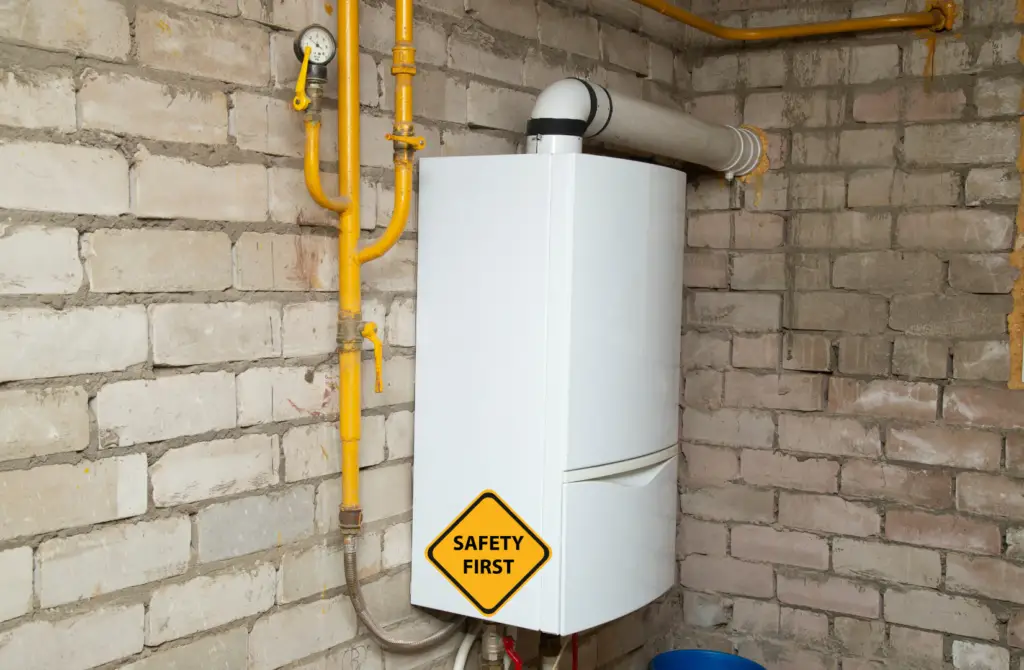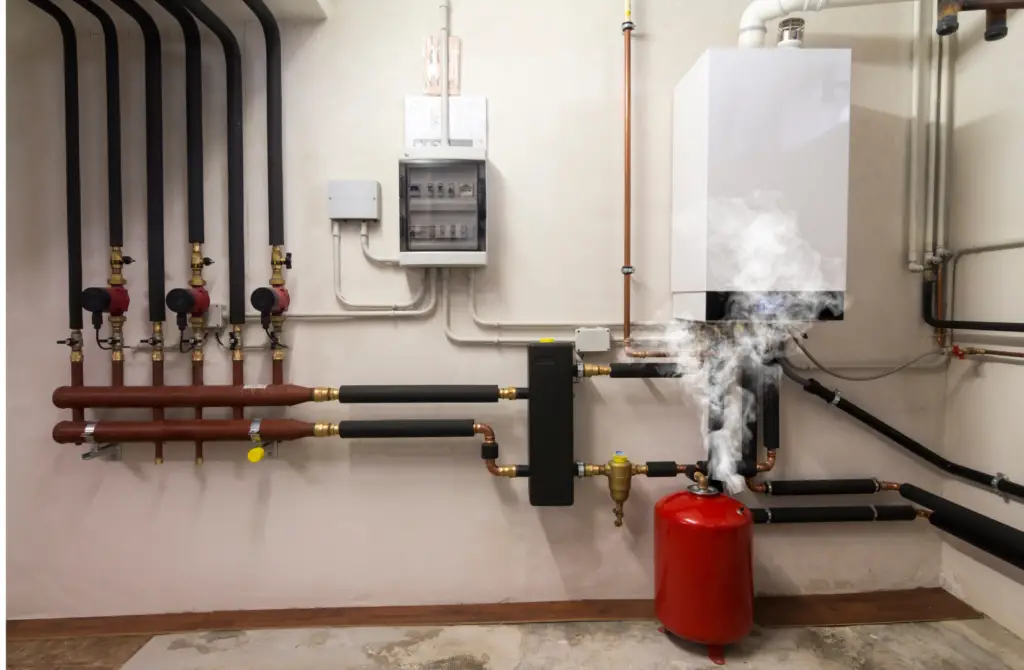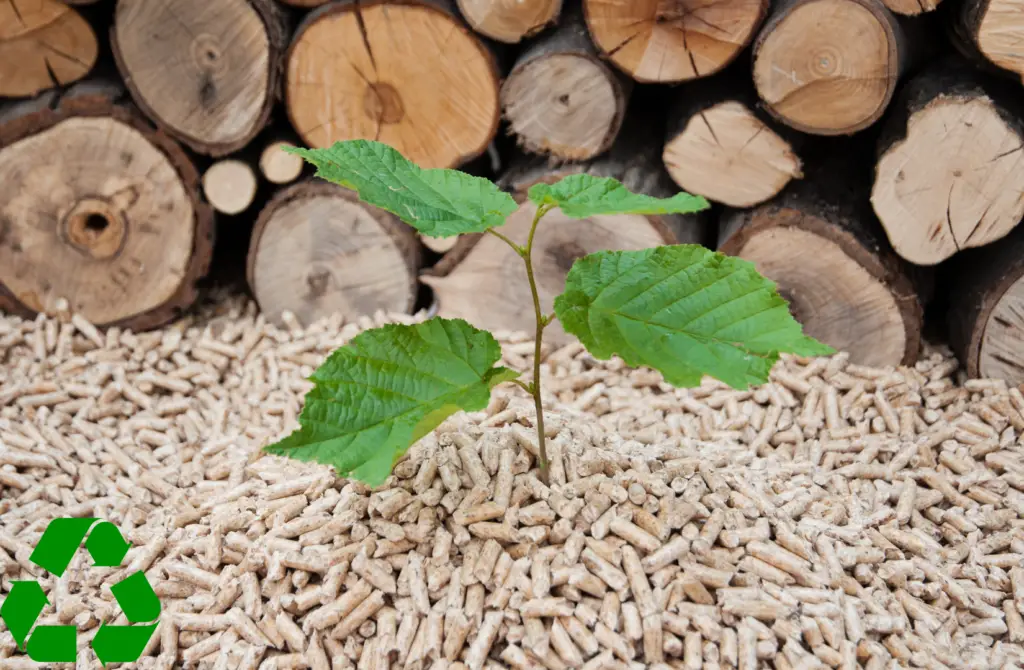Biomass energy is becoming increasingly popular as an alternative energy source. Due to the nature of this energy source, buyers have lots of questions. The most prevalent being, do biomass boilers smell?
On average, Biomass boilers do not produce odors. However, a few factors can contribute to unpleasant smells from a biomass boiler. Poorly maintained equipment can have an odor similar to a wood stove. If the biomass fuel is not dried correctly or contaminated with other materials, it can produce an unpleasant smell.
Properly maintained and high-quality biomass boilers will not smell. In fact, with the right equipment and fuel, a biomass boiler can be a clean and eco-friendly option for generating heat. Don’t let misconceptions hold you back from exploring the benefits of biomass boilers for your home or business.

Misconceptions about Biomass Boilers and Smell
Since the advent of Biomass boilers, lots of myths have sprung up. There are various of them regarding biomass boilers.
These misconceptions lead consumers to believe they emit foul odors and are difficult to maintain. One common misconception is that because biomass boilers burn organic materials like wood chips or pellets, they emit an odor comparable to a wood stove. This, however, is different. A biomass boiler should not emit perceptible scents if properly maintained and utilized with high-quality fuel.
Other misconceptions about Biomass Boilers include:
Biomass Boilers are Expensive
Another misconception is that biomass boilers are expensive to run which is totally false. While the cost of the Biomass unit may be well above the cost of traditional or conventional oil, gas boiler, its running costs effectively helps to cover the initial cost.
Biomass boilers can be more cost-effective than traditional fossil fuel boilers, especially if the fuel is from a local source. Biomass boilers require regular cleaning and maintenance for their proper functioning. Also, Biomass Boilers can also be more cost effective if the system is installed using the Renewable Heat Incentive (RHI).

Biomass Boilers Take up Space
Many people also believe that biomass boilers take up more space than other heating systems, but this is not the case. Biomass boilers are available in different sizes and can be designed to fit into a small space. The space required is usually dependent on the fuel type, boiler requirements, location of storage, distance from the boiler, and the existing space on site.
The average size of a domestic biomass boiler is usually not larger than a washing machine. Also, your available space will determine how much fuel you can store at a time.
Biomass Boilers are Unreliable
Another misconception people have about biomass boilers is that they are unreliable. Biomass systems often fail or prove unreliable when there are no routine checks on the system to preserve them.
On average, Biomass systems that undergo heavy duty application (3000 run hours) must be serviced atleast every 6 months and for regular biomass systems, annually.

How Biomass Boilers Work
A biomass boiler system is a heating system that uses organic materials, such as wood chips or pellets, as fuel to generate heat. The combustion process converts the energy stored in organic materials into heat. A combustion chamber in a biomass boiler system burns the fuel at high temperatures to produce heat.
Biomass Boiling System Fuels
The fuels used in a biomass boiler system can vary depending on the availability of local resources and the system’s specific needs. Some common fuels used in biomass boiler systems include wood chips, pellets, and sawdust.
Wood Chips
Wood is a popular fuel choice for biomass boiler systems, as it is readily available and sustainable. Pellets and wood chips are commonly used as fuel in these systems and can be made from various wood sources. Sources like sawdust, wood shavings, and even wood waste from sawmills and furniture manufacturers.
When used in a biomass boiler system, wood fuel is fed into the combustion chamber, where it is burned at high temperatures to produce heat. The heat from the combustion process is converted into steam, which can be used to power a steam turbine or to heat water for space heating or hot water.
The combustion of wood in a biomass boiler system is e a carbon-neutral process. The carbon dioxide emitted during combustion equals the amount absorbed by the tree during its growth. This makes wood an environmentally friendly fuel choice compared to fossil fuels.
It is essential to use high-quality wood fuel in a biomass boiler system. The wood should be dry, with less than 20% moisture content, to ensure efficient combustion and reduce emissions produced. In addition, wood should be free from contaminants such as rocks, metal, and plastic.

Pellets
Boilers for heating systems commonly use pellets as a biomass fuel. Manufacturers produce pellets by compressing sawdust, wood chips, and other biomass materials.
They are a convenient and efficient fuel source for biomass boilers because they are easy to store, transport, and handle. They also have a high energy density, meaning they can provide a lot of heat per unit of volume.
Biomass materials that can be replenished through sustainable forestry practices make pellets a renewable energy source. Pellet boilers are also environment-friendly as they emit less carbon dioxide and other pollutants than fossil fuels.
Sawdusts
Another form of biomass fuel for use in boilers and heating systems is sawdust. It is made up of tiny pieces of wood and is a byproduct of the sawmilling industry. It is used as a fuel source for biomass boilers because to the high energy content that may be generated during burning.
Sawdust can be burned directly in boilers. It is often compressed into pellets for easier storage, transportation, and handling. Pellets made from sawdust are a more convenient and efficient fuel source for biomass boilers. This is because they have a high energy density, which means they can provide a lot of heat per unit of volume. Additionally, sawdust pellets are considered a renewable energy source because they are made from a sustainable and renewable resource.
Sawdust and wood pellet boilers are also environment-friendly as they emit lower levels of carbon dioxide and other pollutants than fossil fuels. They are also considered carbon neutral as the carbon dioxide emissions produced when burning the fuel are balanced by the carbon dioxide absorbed by the tree during its growth.
When burning sawdust pellets, they release carbon dioxide emissions. However, trees absorbs carbon dioxide during its growth, which balances out the carbon dioxide emitted when burning the fuel.
Biomass Boiling System Process
The heat produced during the combustion process is used to generate steam. This can be used to power a steam turbine or to heat water for space heating or hot water. The heat can also be used to generate electricity through a process known as cogeneration.
In terms of waste products, biomass boiler systems produce ash, a byproduct of the combustion process. This ash is removed from the system and can be used as a fertilizer or soil amendment. Some systems also produce carbon dioxide and nitrogen oxides, but these emissions are much lower than those produced by fossil fuel-burning systems.

Biomass boiler systems can be designed to be highly efficient and environmentally friendly. They have the potential to reduce greenhouse gas emissions significantly. They are also more cost effective than traditional fossil fuel systems, especially when the fuel source is sourced locally. In addition, many systems can be automated, making them easy to operate and maintain.
A biomass boiler system is a clean and efficient way to generate heat and power using sustainable and renewable resources. With proper maintenance, it can be a reliable and cost-effective option for homes and businesses.
Conclusion
Biomass systems do not smell. If you detect any smell or foul odor from then there is most likely an anomaly in the system. The most obvious cause of odors from your system is usually due to poor maintenance culture or poor quality of fuel.
Experts have debunked other misconceptions about biomass systems, including the idea that they require large spaces and are costly. Biomass systems are compatible with other heating systems, very reliable, and do not require significant installation space.
